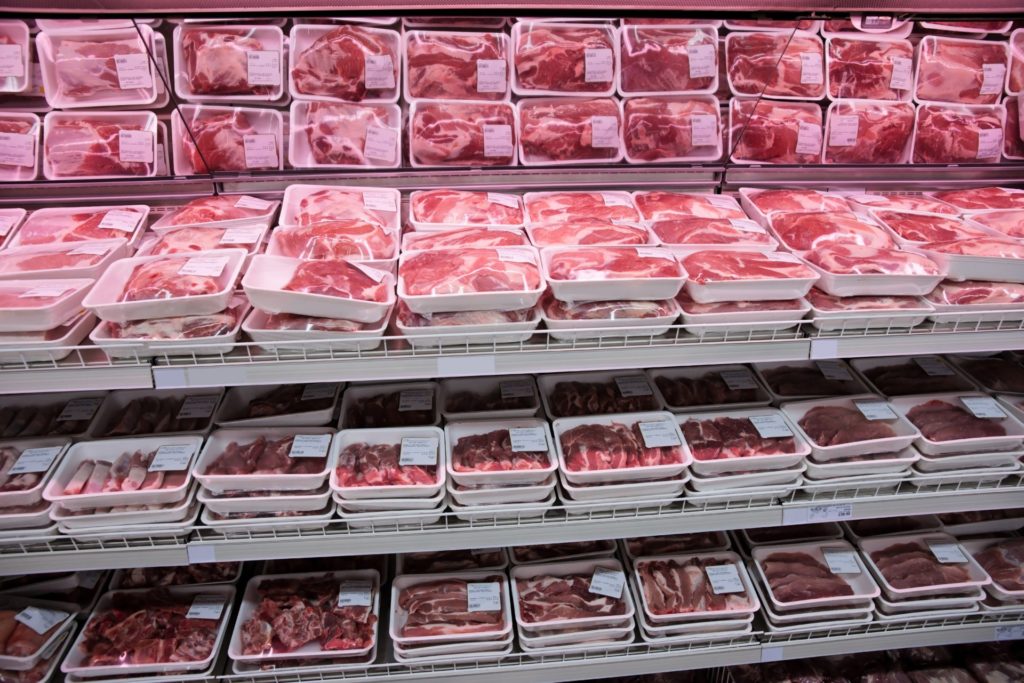It’s a sensitive subject to raise when out having a steak or burger with friends, but we need to talk about meat.
Measures to address the unsustainable environmental footprint of beef are gaining support. This is evident in the calls for a beef tax that have been mounting since 2018, when a group of French economists proposed it as the best way to reduce our dietary greenhouse gas emissions.
Goldsmiths University of London acted on similar concerns last year when it banned beef from its dining halls, a move that has since been emulated by other universities in the United Kingdom, Finland and Portugal.
Policies addressing animal agriculture’s contribution to the climate crisis are overdue. But we should be wary of responses that specifically target beef. Our environmental obligations include not only duties to human beings but to other animals. If we are serious about meeting them, we should avoid measures that address beef in isolation and instead opt for those that target meat consumption more broadly.
Animal agriculture is responsible for 14.5 per cent of global greenhouse gas emissions. We’ve known as much since 2013, thanks to a report by the Food and Agriculture Organization of the United Nations. Most of those emissions come from the beef and dairy industries and are due in large part to cows’ digestive systems, which release methane into the atmosphere every time they burp.
But if beef’s enormous environmental hoofprint has long been familiar, this has made little difference in what people eat. Since 2013 cattle meat production in the European Union has actually increased, from 7.4 to 7.9 million tonnes. It is hardly surprising that decision-makers would want to address this ominous trend. Measures that target beef, however, risk pursuing climate justice at the expense of animal well-being.
Animal suffering
In recent decades moral philosophers have challenged the low moral status that animals have traditionally occupied. A moderate version of this view draws attention to the suffering farmed animals experience even in countries with progressive welfare laws.
Causes include the stress caused by confinement, separating offspring from their parents, overcrowding and other forms of abuse that undercover investigations by Compassion in World Farming of European farms expose even today (e.g. diary calves and rabbits). A stronger concern with animals holds that even the painless killing of sentient beings for food is morally wrong when equally nutritious plant foods are widely available.
Like many moral philosophers I am drawn to the stronger view. But even the moderate view suggests that we should kill fewer animals for food, as doing so will reduce the number who experience lives of misery.
Beef ban
This is where beef bans run into trouble. An average cow weighs 544 kilograms (k), the average pig weighs 113 k and the average chicken only 2.7 k. If someone stops eating beef but increases their consumption of pork or, especially, chicken, the overall harm caused by their diet will significantly increase.
It is too soon to know the long-term effect of university beef bans. But if they result in students replacing beef with pork or chicken the gain in climate justice will have come at the expense of animal suffering.
A similar danger faces the beef tax proposal put forward by Céline Bonnet and colleagues at the Toulouse School of Economics. They argued that such a tax would be better than one imposed on meat in general, because “we may recover a large part of the environmental benefits without significantly hurting consumers.”
Consumers however are not the only ones who can be hurt by food policy. Once we extend our concern to animals, the case for a beef-specific tax evaporates.
One possible response is to reintroduce beef at university cafeterias and to oppose any climate-based tax on food. While this is the stance of the beef lobby, it does nothing to address the fact that the modern Western diet is environmentally and ethically unsustainable. If we take both the environment and animals seriously, a different set of responses recommend themselves.
Alternative solutions
The first would be for universities or other institutions to reduce beef consumption without increasing the sale of other meats. Since 2016 the University Catering Service at the University of Cambridge has combined a ban on beef and lamb with a sustained effort to replace both meats with plant-based meals. That should be a minimal condition of any future beef bans.
Alternatively, universities and other institutions could sign the Cool Food Pledge, which sees signatories commit to reducing food-related emissions by 25% by 2030. Current signatories include the cities of Ghent, Milan and Toronto, as well as Harvard University and many other organizations.
Such a pledge, which all public and private entities should sign, is more flexible than a beef ban and can be implemented alongside a commitment to not increase the overall number of animals farmed for food.
Meat tax
In an ideal world government would also end all subsidies for animal agriculture, which artificially reduce the price of beef and other meats. In addition to subsidizing unsustainability and animal suffering, European subsidies price farmers in the developing world out of the market, and encourage corruption of the kind represented by Czech Prime Minister Andrej Babis, who is notorious for administering subsidies that benefit companies he owns.
Precisely because subsidies are in the interests of the powerful, they may be difficult to eliminate. Given this, a tax not just on beef but pork, chicken and every other meat is a way of addressing red meat’s environmental costs without increasing the risk of harm to animals. The True Animal Protein Price Coalition, a Dutch environmental group, is currently lobbying for a meat tax that would apply to beef, pork and chicken.
Their proposal includes compensation for low-income groups, for whom consumption taxes are disproportionately costly. Such a tax has all of the benefits of one imposed on beef with few of the drawbacks. If it becomes law it will set a new standard as a policy that is good not only for the environment but also the domesticated animals with whom we share it.
Andy Lamey


